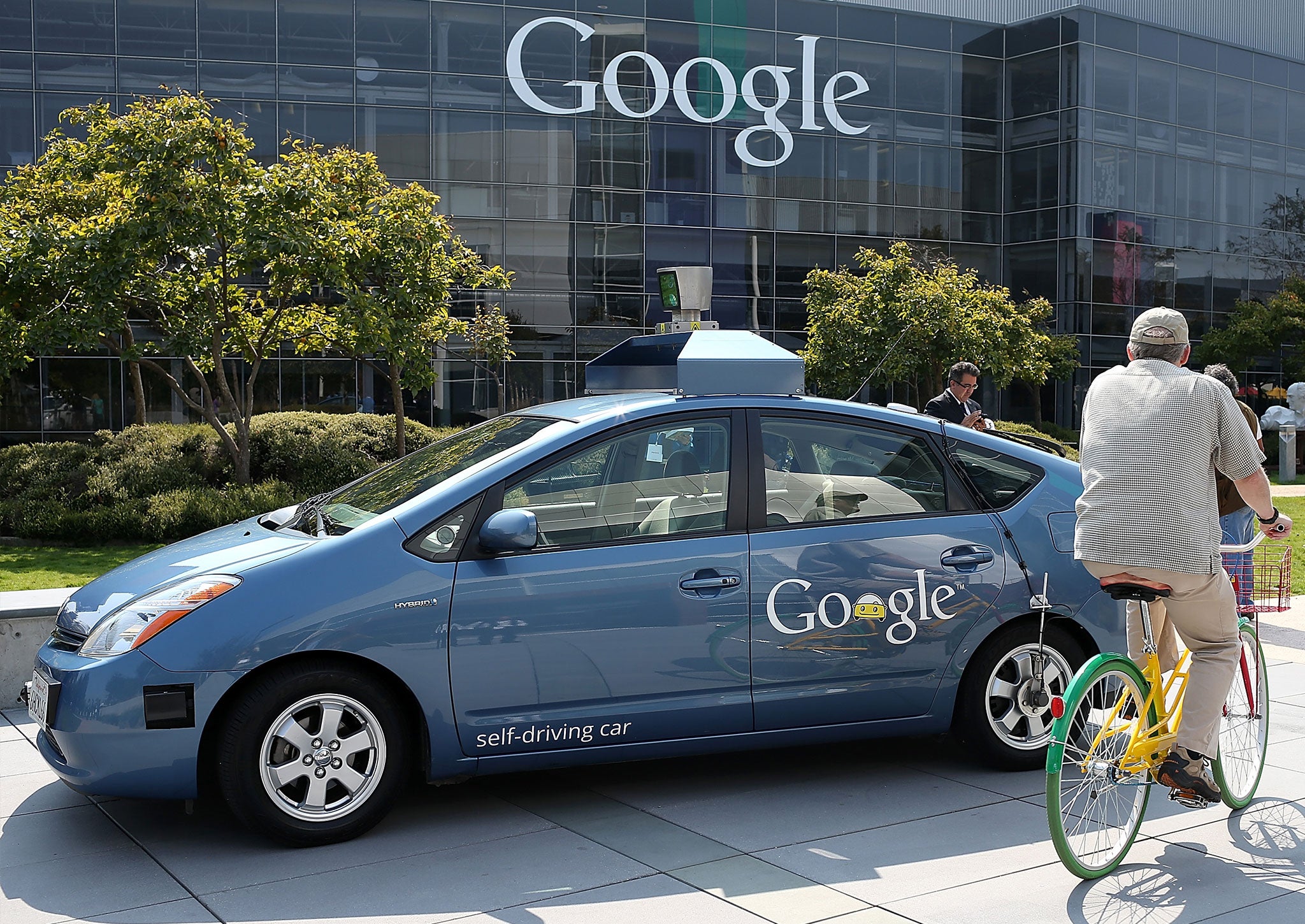The Independent's journalism is supported by our readers. When you purchase through links on our site, we may earn commission.
The driverless car puts us on the road to a ‘hands‑free’ world. But do we really want to go?
It seems like a futuristic dream, but the majority of us remain unconvinced

I was at a party recently, and someone was telling me about the Next Big Thing in online, super-high-convenience shopping.
It was a really fun party. Anyway, the next big thing apparently is mail-order shaving kits, posted every month so you never run out of fresh razor blades again. It’s huge in America, with companies such as ShaveMob and Dollar Shave Club vying for a slice of a booming business. And if it’s huge in America, that means it will probably be huge in the UK quite soon.
It’s a good idea, I guess. Lots of men and women shave. It is a bore to buy the necessaries and even more of a bore to run out unexpectedly. But then shops are good too. It is not as though razor blades are hard to come by – every supermarket, chemist and corner shop sells them. When did our lives become so hectic that a detour via the toiletries aisle is a step too far? When did we become so unused to doing things ourselves?
The thought arose again this week with reports that driverless cars will soon hit UK roads. One should always approach any announcement about a revolution on the roads with caution – the Sinclair C5 never quite caused the silent bottlenecks it promised – but this one looks as if it might really happen.
According to the Business Secretary, Vince Cable, the first driverless cars could be droning around Birmingham’s Spaghetti Junction by January. Google’s self-driving vehicles have already covered 700,000 trial miles in America. And where Google leads, humanity follows.
As outsourcing pesky, practical matters goes, not having to drive one’s own car is the ultimate – a significant step up from shaving by post. The advantages of this leap – and it is a potentially life-changing, city-redefining leap – are various.
Driverless cars use 360-degree sensors, antennae and GPS to travel, feeding information back to a central computer which controls steering, braking and accelerating. This means, in theory, there will be no more dangerous driving or speeding. The roads will become safer as tired, drunk or texting drivers are rendered powerless in their own pod. People who are unable to drive for reasons of age or ill health will be liberated. Thanks to the superior efficiency of machines, congestion will ease; emissions will be reduced. And, crucially, the time-wasting traffic jam will become a thing of the past. Going hands-free will free up acres of time.
Despite this, a survey by Churchill Insurance (not a disinterested party – in a world without drivers, who causes third-party damage?) found this week that 56 per cent of adults would not buy a driverless car. Malfunction is the main fear, and a legitimate one for anyone who has ever had a computer crash or a phone signal cut out on them.
More than half of those questioned said they did not like the idea of a lack of human control – again understandable, though many of them will likely have flown on an aeroplane or ridden the Docklands Light Railway without a thought. And while it may not be so much of an issue on London’s roads, will Google be an empathetic driver? Will it pull over when it hears a siren or sees a driver in distress, slow down well before the old lady steps on to the zebra crossing or swerve to avoid the neighbour’s cat even when the rules of the road say not to?
There are more existential concerns, too. With big business at the wheel, our every move, preference and change of direction are tracked even more easily. And while no one likes to be a Luddite, it is odd to think of a generation of teenagers growing up without the embarrassment of crunching a gear or bunny-hopping down the street. A computer will smooth that rite of passage for them – and in time a skill will disappear.
Some people like driving, too. They take pleasure in the open road and the absorption in a task – not to mention the rare calm of a journey or a commute where to respond to another’s call is to break the law. If, as looks likely, the driverless revolution arrives, what will we do with all that time we once spent tapping the steering wheel in motorway snarl-ups? Send a lot more emails, I expect.

Join our commenting forum
Join thought-provoking conversations, follow other Independent readers and see their replies